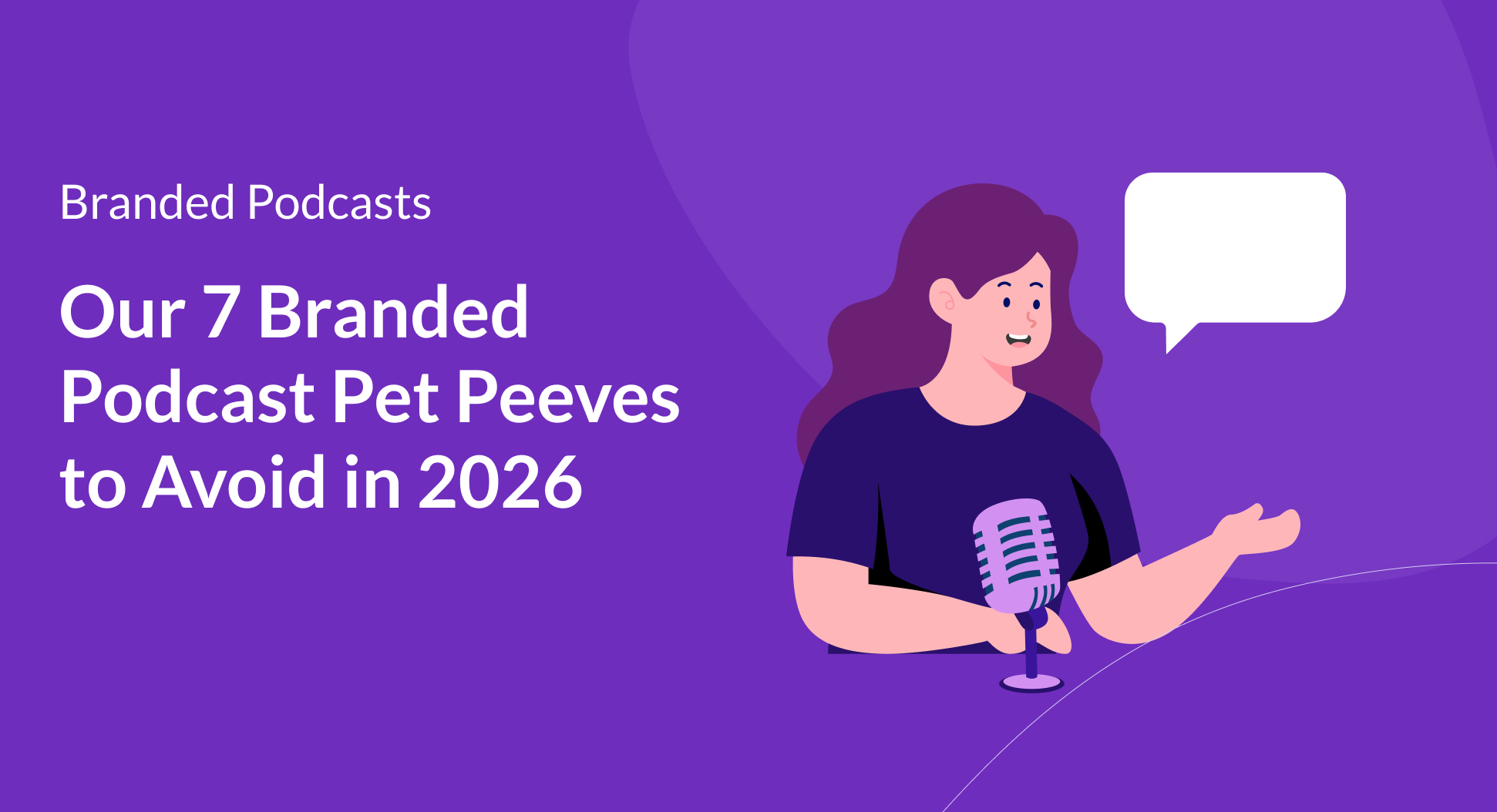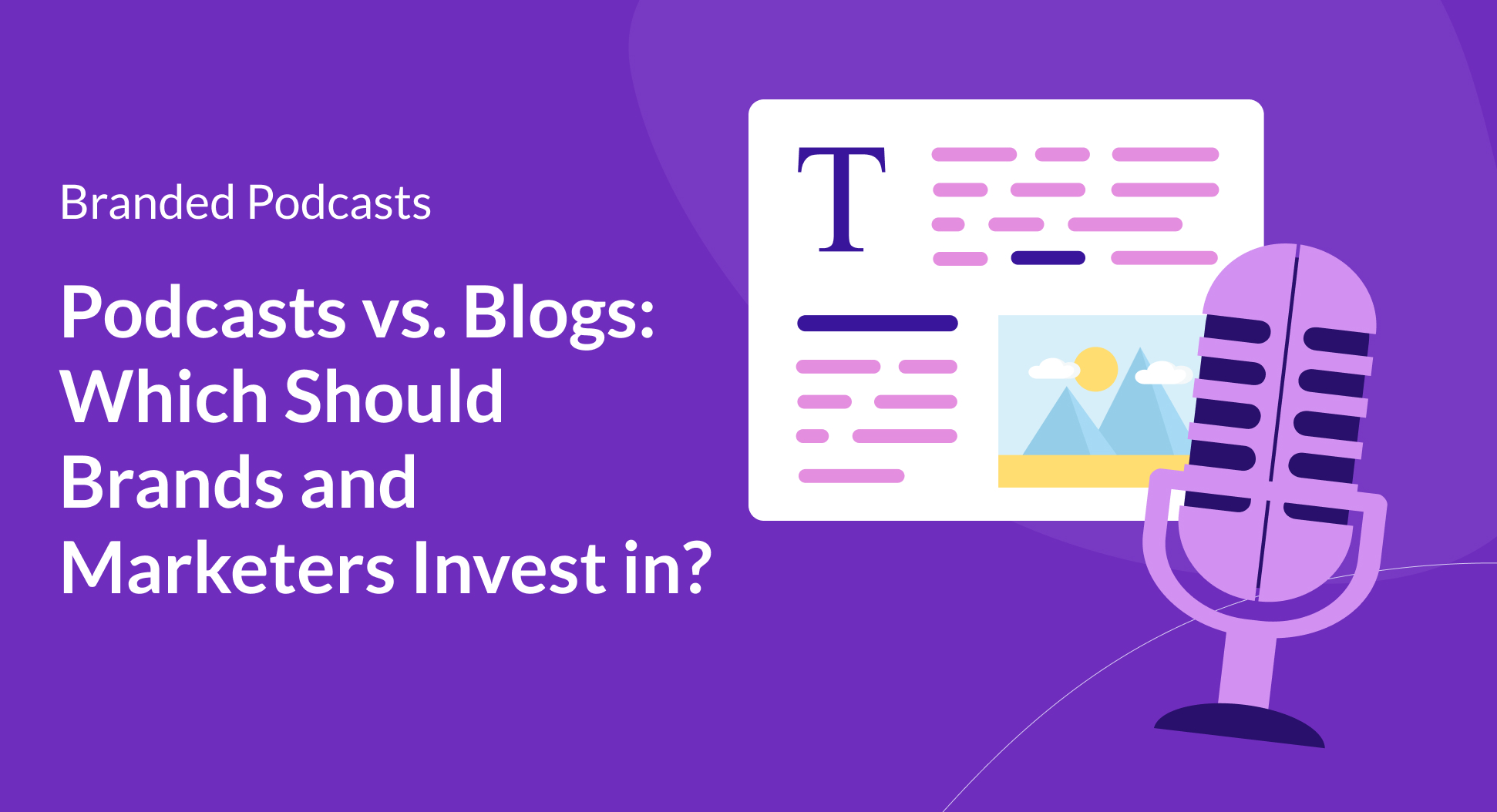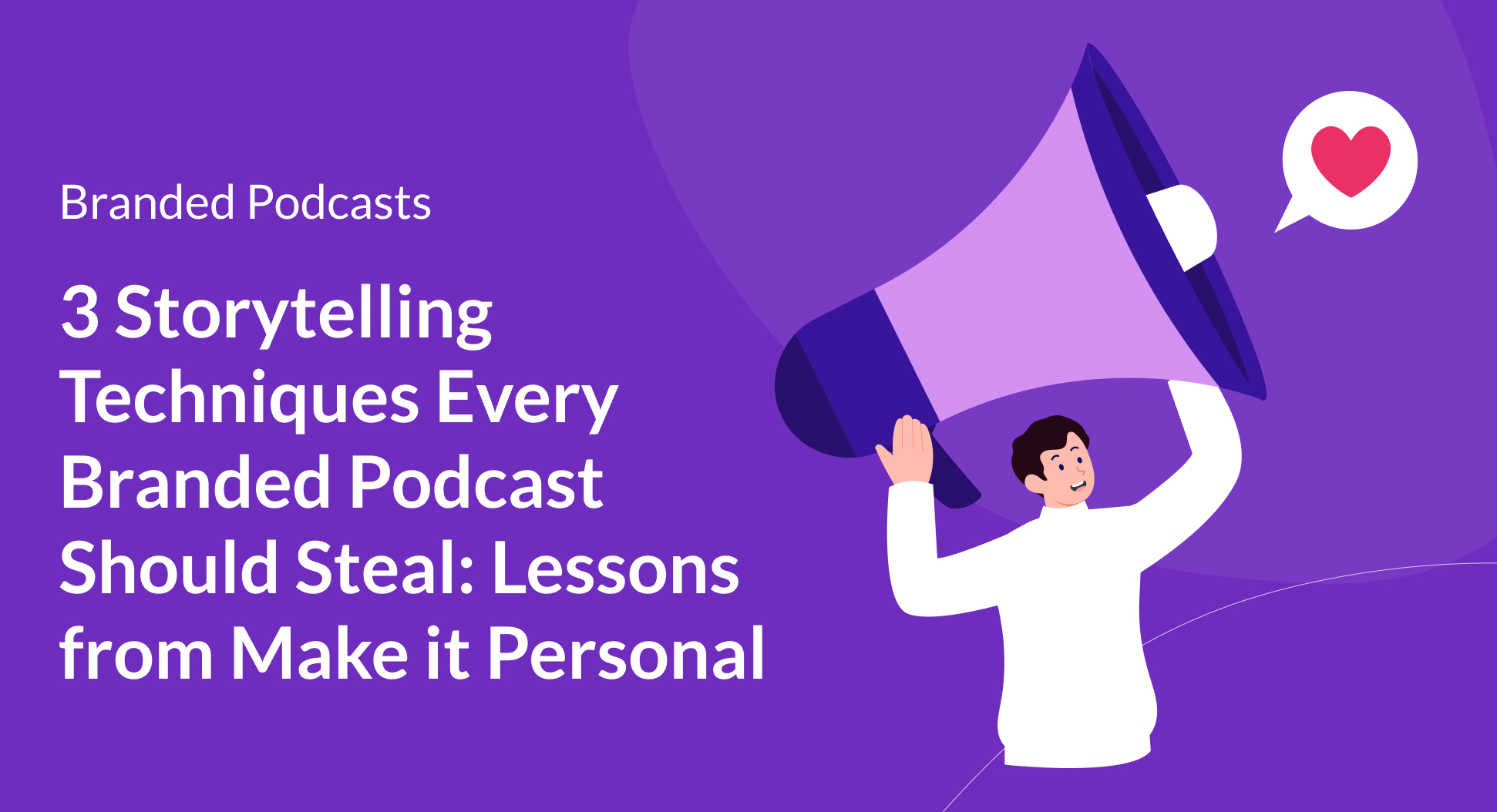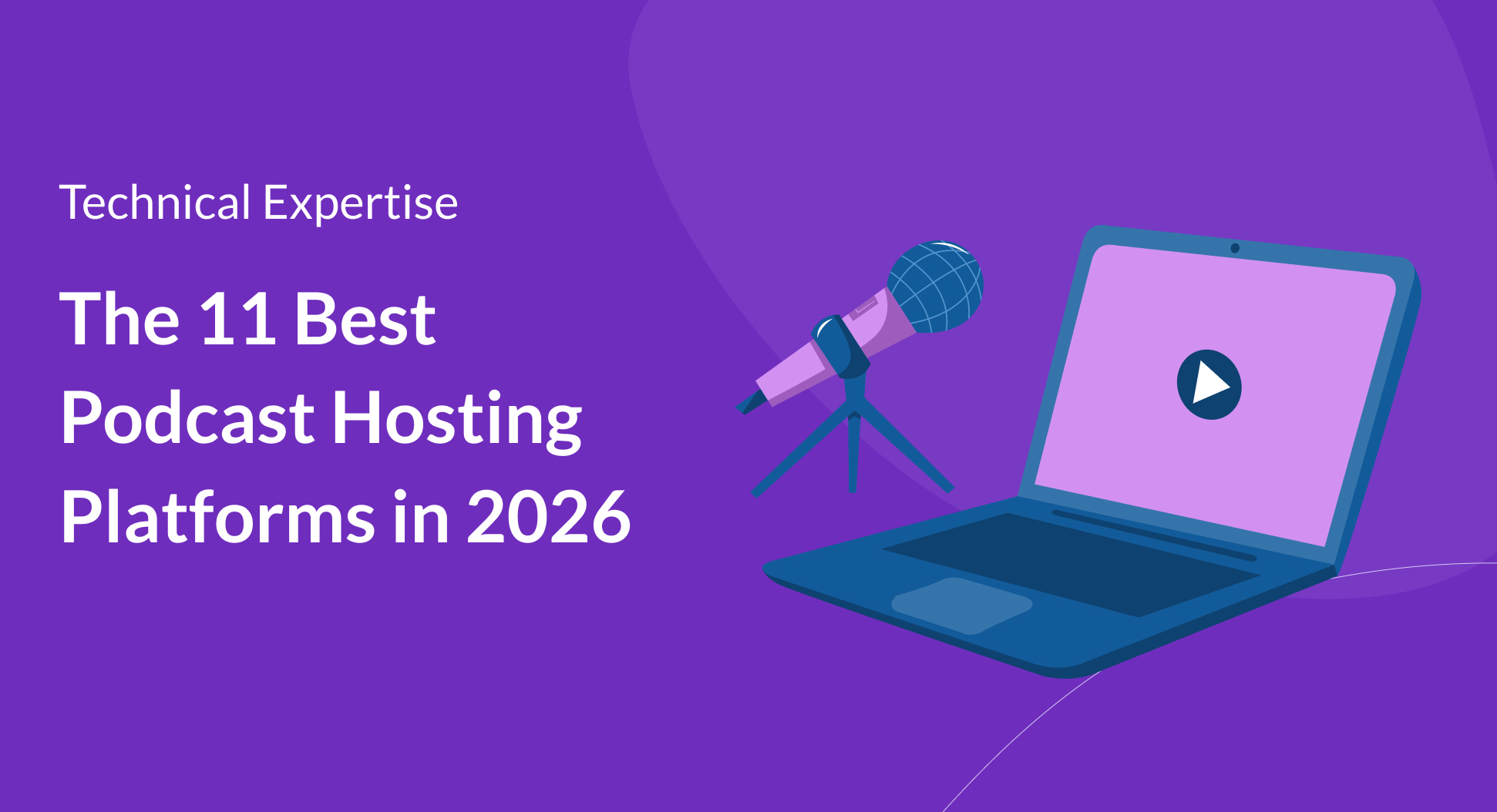Contents
Writing a podcast script can be one of the most fun, but also the most challenging parts of creating a podcast.
Whether you’re going for an interview, discussion, or fiction podcast format, your script will obviously look a little different, but overall using a podcast script can also:
- Make the recording and editing process more streamlined
- Reduce excessive rambling, pauses, mumbles, and misspeaks
- Help prepare guests for interviews and guide discussions smoothly
That is why we put together this blog to provide you with a sample podcast script structure, templates for each element, and uncover expert tips into how you can write a podcast script that makes an impact.
Podcast script structure
Use your script as a guide to enhance the format of your show. Here’s an example of how you can structure your script:
- Intro (trailer, music, topic)
- Guest introduction
- Point # 1
- Supporting evidence/anecdote
- Point # 2
- Supporting evidence/anecdote
- Thank your sponsors
- Point #3
- Supporting evidence/anecdote
- Outro CTA
Podcast script elements with template examples
1. Show introduction:
The show introduction is your podcast's welcoming handshake, setting the tone for your episode and giving listeners a brief overview of what to expect. It should be concise, inviting, and include a short pitch about your podcast. Here's a basic template to get you started:
"Welcome to [podcast name] where we [1-2 sentence show explanation]. I'm [host name], and in this episode, we're diving into [topic] with [guest name and description]. Make sure you stay tuned to the end for [value proposition to the listener].”
2. Guest introductions:
If your podcast features guest interviews, it's crucial to introduce them effectively. This not only ensures you get their name and credentials right but also provides context for why your audience should be interested in their expertise and trust their insights. A straightforward template could look like this:
"I’m here with [guest name], a [job title/credentials] from [location]. We’re going to dive into [topic of discussion and relate it to the guest’s know-how]. Hi, [guest first name], thanks for joining us."
3. Sponsor ad messages:
Sponsorships can be a significant source of revenue for your podcast. The script for sponsor ad messages may vary depending on the brand's preferences, but it's essential to make them sound natural and engaging.
Remember, 55% of podcasting ad revenue comes from host-read ads, so if you use the product, make sure to add in your personal experience.
Often times your sponsor will have a script for you to read or indicate elements to include, but here's a template for incorporating sponsor messages in case you choose to write your own:
"This episode is brought to you by [sponsor name], the best/leading [describe product/service and list its benefits. Perfect for [describe target audience].”
4. Show outro:
The outro is your chance to wrap up the episode gracefully. Thank your guests, summarize key points, express gratitude to your audience, and announce any upcoming episodes, events, or promotions. Here's a template for your show outro:
"I want to extend a big thank you to our wonderful [guest name] from [workplace] for sharing their insights today and a big thank you to our listeners for joining us.”
5. Calls to Action (CTAs):
CTAs are essential for boosting listener engagement and growing your podcast's audience. They should be clear, actionable, and simple.
Importantly, make sure to be straightforward in your ask and make it as easy as possible for listeners to do what you want them to.
Here's a template to get you started:
"Thanks for tuning in to [podcast name]. Don't forget to join our mailing list at [website name], so you never miss a detail or an update. For anyone in the [location] area, grab your tickets for our live show at [location]. Find the link in our description or on our site."
These podcast script segments provide a solid foundation for structuring your episodes effectively. Remember that as your podcast evolves, you may need to tailor these templates to suit your changing goals and audience needs.
How to improve your podcast script
Now that you have a basic script outline as a starting point, here are tips for writing a podcast script that will dramatically improve your content and attract listeners:
Inject personality
Scripts help keep your content on track, but it’s best not to include all the details of what you want to say word-for-word. Concisely outline your episodes and leave room for improvisation.
Allow your personality to shine through to avoid sounding like a robot. Ensure you use natural-sounding words and everyday language. You don’t want the show to sound scripted because this can make your audience feel alienated.
Consistent introduction and conclusion
Your introduction and conclusion will likely be similar every time you record. This helps your show remain consistent and your audience will know what to expect in every episode. Lean on your script to avoid forgetting to include call-to-action phrases such as sharing your website or following your social channels.
Organize your content
Use your script to determine the pacing of your content. A good pace helps keep your audience engaged - it’s neither too fast nor too slow.
Pace becomes even more crucial when you consider that 59% of podcast listeners are multitasking. Transition phrases, such as "Now that we’ve covered X" or “Moving onto Y” can help signal shifts in topic or direction.
This also plays a crucial part in the timing of your show. You likely have an idea of the duration you want your episode to be. In your script, outline a rough estimate of the amount of time you will spend speaking about each section of content.
This helps you avoid lengthy episodes and reduces the amount of time you’ll need to spend editing your podcast to remove unnecessary content.
Keep it conversational
When we think about podcasts, we often associate them with the warmth and intimacy of human conversation. It's this unique characteristic that sets podcasts apart from other content forms.
The moment you hit play on a podcast, you invite the host or hosts into your world, creating an almost immediate connection. This connection can be a powerful tool for establishing trust and fostering engagement with your audience.
However, striking the right balance between a casual conversation and a well-structured script can be a challenge. There's a fine line between being conversational and falling into a monotone, robotic delivery that can disconnect you from your audience.
Here are some tips for striking that important balance:
- Read aloud: One of the most effective ways to ensure your script maintains a conversational tone is to read it aloud. This practice allows you to identify awkward phrases, wordy sentences, or areas where you may sound robotic.
- Practice: Practice, practice, practice. The more you rehearse your script, the more comfortable and conversational you will sound. Familiarity with the material will enable you to speak naturally and confidently.
- Improvise: While it's essential to have a script, don't be afraid to deviate from it when it feels appropriate. Spontaneity can add to the conversational tone and keep your audience engaged.
“Having a great podcast script is key, but like most things, it’s important to find balance. Overscripting can lead to your podcast sounding like an audiobook, which will turn listeners off. They want the opportunity to connect with you and your guests. Find what works best for you. Dividing your podcast into thematic sections, creating a skeleton plan, or using dot jots are all effective ways to keep on script without sounding scripted.”
- Quincy de Vries, Producer @ Quill Inc.
2. Use delivery notes
A well-crafted podcast script includes delivery notes, adding nuances like pauses, emphasis, laughter, sighs, and other dramatic elements. These notes breathe life into your script, making it sound more authentic.
Reading your script aloud with these delivery notes in mind ensures that your podcast feels genuine and engaging. We’ve listened to some shows that remove all of this from the final episode during post, be cautious with this. It can come off as overly robotic and unnatural since no one speaks in perfect sentences.
3. Be flexible
When it comes to podcasting, flexibility is key. While it's beneficial to have a structured script, don't feel confined by it during recording. If inspiration strikes or you think of something valuable on the spot, feel free to deviate from the script.
Remember, you can always edit out or refine impromptu additions during post-production. However, avoid going off on tangents unrelated to your podcast's theme, as excessive off-script content can detract from your message.
Set the scene
Since podcasting relies solely on audio, your descriptions play a pivotal role in helping listeners visualize your content. When referencing images, people, or videos, provide detailed and vibrant descriptions.
Consider that your audience relies solely on your verbal cues to create mental images. Think of podcasting as a phone conversation with someone who can't see what you see.
For example, if you refer to an image that your audience can’t see, try painting a picture with words. When you’re sharing a video, describe the story arc to your audience. When referring to a person, bring that person to life using vibrant language.
Create a script for success
Crafting a killer podcast script is an art that combines structure, creativity, and authenticity.
As we've explored in this comprehensive guide, understanding the essential script segments and using our provided templates can serve as a powerful springboard for your podcasting success.
Whether you're a seasoned podcaster aiming to refine your content or a newcomer embarking on this exciting journey, remember that a well-crafted script not only keeps your episodes organized but also engages your audience in a way that resonates and captivates.
Embrace your unique voice, keep your content conversational, and use these templates as a starting point to create episodes that leave a lasting impact. With dedication and practice, your podcast script will become a powerful tool to share stories, insights, and knowledge, making your podcast truly unforgettable.


.avif)



.png)

.png)

.png)




.png)
.png)
.png)
.png)